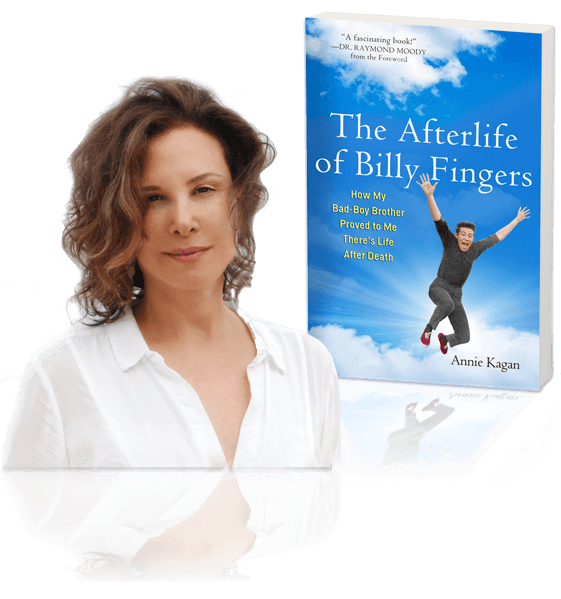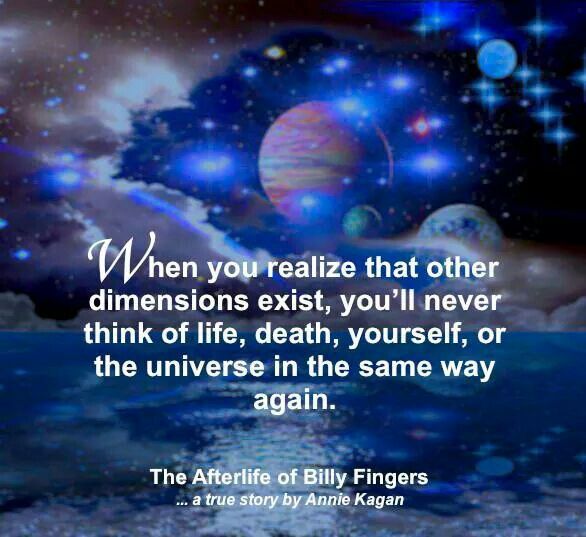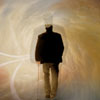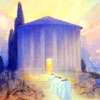The Afterlife Of Billy Fingers
 How My Bad-Boy Brother Proved To Me There Is Life After Death
How My Bad-Boy Brother Proved To Me There Is Life After Death
FOREWORD – This fascinating book may initially surprise and baffle some readers. After all, the events it recounts may seem completely unbelievable  and far beyond reality. Therefore, I am grateful to Dr. Kagan for asking me to write this foreword, because it gives me an opportunity to talk about one of my favorite subjects—the incredible world of the ancient Greek philosophers.
and far beyond reality. Therefore, I am grateful to Dr. Kagan for asking me to write this foreword, because it gives me an opportunity to talk about one of my favorite subjects—the incredible world of the ancient Greek philosophers.
The average American will probably find Dr. Kagan’s narrative of her other-worldly adventures with a deceased brother hard to believe. That is too bad, though, because the Greek philosophers who founded Western thought knew full well about the remarkable phenomenon she describes. In fact, Greek philosophers even had a name for the people who were somehow suspended between this life and the next life. They called such people “walkers between the worlds.”
 The walkers between the worlds had important social functions. As the early Greek philosopher Heraclitus put it, they “watch over the living and the dead.” In about 600 BCE, one of the earliest of these figures, Aithalides, was reputed to be able to pass back and forth at will between the physical world and the afterlife world. In Ancient Greece, walkers between the worlds served functions that in modern Western society are carried out by individuals who have neardeath experiences. Specifically, they were mediators, intermediaries, or messengers between the realm of the living and the realm of the dead.
The walkers between the worlds had important social functions. As the early Greek philosopher Heraclitus put it, they “watch over the living and the dead.” In about 600 BCE, one of the earliest of these figures, Aithalides, was reputed to be able to pass back and forth at will between the physical world and the afterlife world. In Ancient Greece, walkers between the worlds served functions that in modern Western society are carried out by individuals who have neardeath experiences. Specifically, they were mediators, intermediaries, or messengers between the realm of the living and the realm of the dead.
The philosopher Menippus was another famous walker between the worlds. Menippus visited the afterlife dimension, returned, and then wrote a book about his journey. Menippus was sent back from the afterworld and charged with the task of monitoring what was happening among humans on earth. Then he would report back to his superiors in the world beyond to keep them apprised of humanity’s progress. Menippus dressed the part. He sported an incredibly long gray beard and wore a long gray cloak tied at the waist with a scarlet sash. He carried a wooden staff carved from an ash tree. He wore a strange hat inscribed with the signs of the Zodiac. He was serious about his mission.
 The experiences Dr. Kagan relates are completely consistent with the kind of role walkers between the worlds played in antiquity. And that is no surprise to me. I think that such experiences are part of the collective psychological heritage of humankind—not artifacts of any one culture.
The experiences Dr. Kagan relates are completely consistent with the kind of role walkers between the worlds played in antiquity. And that is no surprise to me. I think that such experiences are part of the collective psychological heritage of humankind—not artifacts of any one culture.
I suspect there are plenty of other people like Dr. Kagan. However, Westerners have developed an utterly false impression that experiences like hers are impossible—or even pathological. Hence, the many people to whom such things happen simply don’t report them for fear of being judged or ridiculed. Accordingly, I salute Dr. Kagan for her courage in writing this book.
 In 2006, I conducted a seminar on grief for professionals and hospice workers. A middle-aged businesswoman who worked for the organization asked me about something that happened to her when she was almost killed. She was severely injured in a car crash and left her body at the scene. She immediately saw an old man in a gray robe standing beside the road. The man had an extremely long gray beard, carried a staff, and wore an odd hat. And she felt he was there to carry her across to the afterworld. Incidentally, I hadn’t mentioned Menippus or other walkers between the worlds during my presentation. The woman spontaneously related her experiences out of her own curiosity. I suspect such encounters have been with us for thousands of years and no doubt occur to quite a few individuals. Dr. Kagan’s thought-provoking account is an excellent example.
In 2006, I conducted a seminar on grief for professionals and hospice workers. A middle-aged businesswoman who worked for the organization asked me about something that happened to her when she was almost killed. She was severely injured in a car crash and left her body at the scene. She immediately saw an old man in a gray robe standing beside the road. The man had an extremely long gray beard, carried a staff, and wore an odd hat. And she felt he was there to carry her across to the afterworld. Incidentally, I hadn’t mentioned Menippus or other walkers between the worlds during my presentation. The woman spontaneously related her experiences out of her own curiosity. I suspect such encounters have been with us for thousands of years and no doubt occur to quite a few individuals. Dr. Kagan’s thought-provoking account is an excellent example.
Dr. Raymond Moody

Chapter ONE – The First Thing That Happens
The Miami Dade Police left a message on my answering machine at nine in the morning. “If you know William Cohen, please contact Sergeant Diaz at 305 . . . ”
Oh no! Billy must have been arrested. Not prison. Not again. Not this late in his life.
It still made me queasy to think about the time my brother was arrested almost thirty years ago; the thud of the gavel, the words “twenty-five years to life,” my mother crying in my arms, begging the judge to change his mind. The day I watched the police handcuff Billy and drag him off to Sing Sing for selling cocaine was probably the worst day of my life.
I was shaking when I punched in the phone number of the Miami Police.
“This is William Cohen’s sister. Has he been arrested?”
“No,” Sergeant Diaz said in a soft voice. “He was hit by a car at two-thirty this morning. I’m sorry. Your brother is dead.”
My heart went cold. Dead? My head spun. I was dizzy. I reached for a chair and sat down.
“What happened?”
“William was coming from the emergency room at South Miami Hospital. He was drunk and ran out onto the highway,” the sergeant reported.
“Were you there?” I asked.
“Yes, ma’am. I was called to the accident scene.”
“Was Billy injured?” Injured? What am I thinking? He’d been run over by a car! “I mean, was he taken to the hospital?”
“No, ma’am. Your brother never knew what hit him. Died instantly. Didn’t suffer at all.”
Died instantly? Didn’t suffer? How on earth could he know that? The sergeant was trying to cushion the blow, but it wasn’t working.
“William was wearing a hospital ID bracelet. We got your name and phone number from their records.”
So that’s how they found me! Billy always wrote me in as his “in case of emergency” person.
Sergeant Diaz cleared his throat. “Listen, ma’am, you don’t have to identify the body. The bracelet is good enough. Better to remember him as you do now.”
Better to remember him as you do now? Oh my God!
The sergeant must have heard me start to cry, because the next thing he said was, “It’s kind of against regulations, but if you give me your address I’ll send you the things your brother had on him.”
Since I didn’t have to view Billy’s post-accident body, there was no reason to fly from New York to Miami. By the time my sixty-two-year-old brother died, he was homeless, so everything he owned was in his pockets. My brother had left things neat and tidy for me—not like when he was alive. What I had worried about for years had now happened. Billy was dead.
To continue reading see the full pdf book download here.
Posted in Life On The Other Side, Other Topicswith comments disabled.





